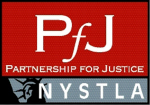 As we kick off 2015 we want to just pause and review some of the best apps out there for lawyers. Through our work here at ESS, we sit in on as many as ten settlement mediations per week, so we see all sorts of presentations and we notice when lawyers use technology effectively. Part of getting the maximum return on a case is being trial ready and prepared so having reservoirs of information within just a few clicks or swipes of your fingers goes a long way. These apps are useful not only for mediation, showing you are trial ready, but are also very useful for trial preparation and the trial itself. Between computers, tablets and mobile devices there are many options for lawyers to enhance their practice by leveraging the latest technology.
As we kick off 2015 we want to just pause and review some of the best apps out there for lawyers. Through our work here at ESS, we sit in on as many as ten settlement mediations per week, so we see all sorts of presentations and we notice when lawyers use technology effectively. Part of getting the maximum return on a case is being trial ready and prepared so having reservoirs of information within just a few clicks or swipes of your fingers goes a long way. These apps are useful not only for mediation, showing you are trial ready, but are also very useful for trial preparation and the trial itself. Between computers, tablets and mobile devices there are many options for lawyers to enhance their practice by leveraging the latest technology.
Here are some of our favorites apps:
1) TrialPad: Don’t even get us started on how much of a game changer the iPad was for lawyers in 2014. Though it comes with a hefty $89.99 price tag, this is one of our favorites for importing files because it integrates with Dropbox and lets you highlight, redact and scribble on your notes.
2) Exhibit A: As the name suggests, this app enables you to share a presentation with a jury or mediator. Digitally presenting your information saves many trees, as these presentations are easily 50-60 pages long. This app, while not as highly recommended as TrialPad only costs $9.99.
3) Circus Ponies Notebook: We don’t just love it for the funny name. This electronic notebook helps you record meetings and take notes so you won’t need to lug boxes and binders. Outfitted with a traditional “notebook” look, it helps you keep everything in one place, capture every detail and find facts quickly. [Read more…]








